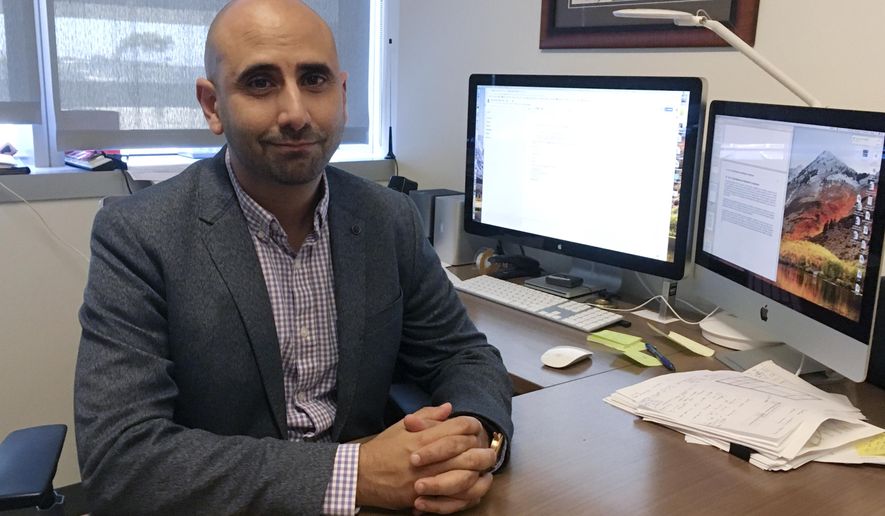Federal agencies are allowing California scientists to import from Canada a novel cannabis mix for experimentation to treat a common neurological disorder that affects millions of older Americans.
Researchers from the University of California, San Diego said Tuesday they received approval from the Drug Enforcement Administration and the Food and Drug Administration to import a unique formula of cannabidiol and low-dose tetrahydrocannabinol, known as CBD and THC, respectively.
The capsules will be manufactured as pills by Canada-based Tilray Inc., and will be used to treat essential tremor, a neurological disorder that causes shaking in the hands, head and voice, and is believed to affect nearly 10 million Americans, especially those over the age of 65.
It currently is managed with a mix of medications to treat high blood pressure or seizures.
While THC is known as the main psychoactive ingredient in marijuana, less is known about how CBD interacts with the brain, said Dr. Fatta Nahab, a neurologist at UCSD Health and lead investigator of the clinical trial.
“The bottom line is we don’t know for sure, but the CBD component is based on previous trials, generally well tolerated even at higher doses,” he said.
Dr. Nahab said that cannabis receptors in the brain were found to be associated with tremor. Researchers hope that by manipulating those brain structures they can reduce symptoms in patients.
The pill will contain a ratio of CBD to THC of 20-to-1.
The study is in collaboration with the UC San Diego School of Medicine’s Center for Medicinal Cannabis Research. It is in part funded by Tilray Inc. and the Essential Tremor Foundation.
Dr. Nahab said it took between 12 and 18 months to receive federal approval for the study.
Despite medical marijuana being legal and available through dispensaries in 30 states and the District of Columbia, it remains federally illegal, and researchers must complete lengthy applications through the FDA for new research projects.
In June, the Food and Drug Administration approved the first CBD-based oral medication for the treatment of severe forms of epilepsy, a breakthrough in medical treatments derived from marijuana.
Yet marijuana for study is typically only available in dry-bud form or cigarettes, cultivated at the University of Mississippi and provided via the National Institute on Drug Abuse.
Dr. Nahab said it was important to develop a delivery method that people didn’t smoke or vaporize. The pill being developed with Tilray will be a hard capsule and will allow for better oversight in dosing, he said.
“It makes the science part of the study much more predictable, since when you’re using cigarettes or using vaporizer, you never really know for sure how much somebody took in,” he said. “At the end of the day it’s really how well you’re able to deliver, what sort of formulation is going to be something that individuals are willing to use on a regular basis in a medicinal purpose.”
Catherine Jacobson, director of clinical research for Tilray, said the approval by the FDA is “unprecedented” and marks the first time a licensed producer in Canada has met the standards of the administration for a study drug.
“That’s a big mile stone for us,” Ms. Jacboson said.
The clinical trial is expected to begin in 2019 and will enroll 16 patients in a double-blind, placebo-controlled, double crossover study. Patients will be evaluated over the course of a year.
• Laura Kelly can be reached at lkelly@washingtontimes.com.




Please read our comment policy before commenting.